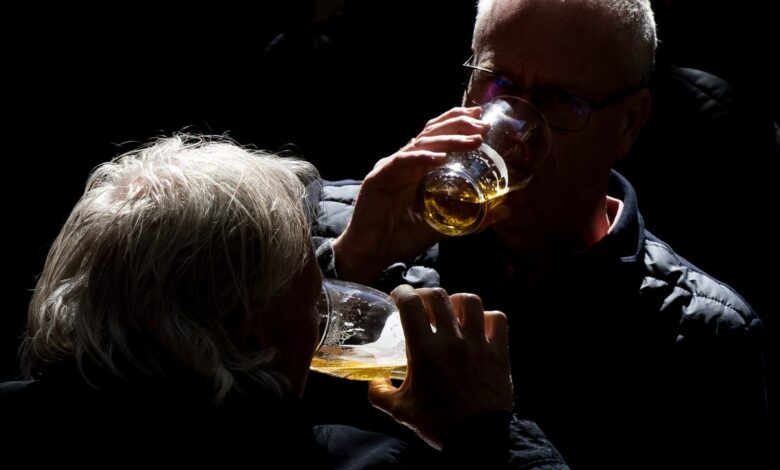Increased pandemic drinking will lead to 1000s of extra deaths in next 20 years, research suggests

Thousands of extra alcohol-related deaths and hospital admissions are set to be reported over the coming 20 years as a result of increased drinking habits acquired during the pandemic, new research suggests.
A study from the University of Sheffield, commissioned by NHS England, found that while lighter drinkers cut their consumption during the pandemic, heavier drinkers drank more and may never return to where they were, leading to serious health complications for many.
The research examined how alcohol-related hospitalisations and deaths are likely to increase post-Covid. It found that, in a worst-case scenario, there will be 972,382 additional hospital admissions and 25,192 additional deaths, at a cost of £5.2 billion to the NHS, in the next 20 years.
In a best-case scenario, where all drinkers return to their 2019 levels of drinking this year, there would still be an extra 42,677 hospital admissions and 1,830 deaths over the next two decades.
A second study, led by the Institute of Alcohol Studies (IAS) and modelling specialists HealthLumen, similarly assessed the impact of pandemic drinking habits on health outcomes.
If drinking does not to return to pre-pandemic patterns, the research found, by 2035 there will be 147,892 additional cases of nine alcohol-related diseases – such as liver cirrhosis and breast cancer – and 9,914 additional premature deaths, costing the NHS £1.2bn.
Experts said that over-45s who were already drinking at risky levels before the pandemic were the most likely to increase their drinking when Covid-19 hit.
Colin Angus, a senior research fellow who led the University of Sheffield study, said younger people took the pandemic as an “opportunity to reset their relationship with alcohol and cut down or even give up entirely”.
He added: “But for others, particularly older, heavier drinkers, things went in the other direction and they started drinking more.
“This polarisation of drinking, with lighter drinkers drinking less while heavier drinkers drank more, is really concerning, because it’s the heavier drinkers, and particularly the older heavier drinkers, who are the ones at greatest risk of becoming ill as a result of their drinking.
“So even though the total amount of alcohol being drunk in England didn’t change much from pre-pandemic levels, we’d expect alcohol-related ill health to increase.”
According to modelling in the Sheffield University report, lower risk drinkers are those drinking within the UK alcohol guidelines of 14 units per week.
Those classed as “increasing risk drinkers” consume more than this but no more than 35 units per week for women and 50 units for men. Meanwhile, high-risk drinkers consume even more than that.
Mr Angus said that, before the pandemic, men were much more likely to end up in hospital or die as a result of their drinking and that is still the case.
But for hospital admissions, experts were seeing a bigger percentage increase for women than for men, he said.
In the main scenario modelled for the study, there is expected to be just over 124,000 additional hospital admissions in men and 83,000 in women over the next 20 years.
On the reasons for women drinking more, he said: “If you really dig into the data, for example, you see that there’s a particular sort of bump in women’s drinking at the point where they’re most likely to have been doing homeschooling during the initial lockdown.
“There’s certainly an obvious narrative that jumps out there about women being more likely to have been doing more of the homeschooling and finding that stressful and ending up drinking a little bit more as a result of that.”
He said one suggestion for why heavier drinkers were drinking more was that they drank more at home during lockdowns but then, when pubs reopened, they did not cut down their drinking at home, so were doing both.





